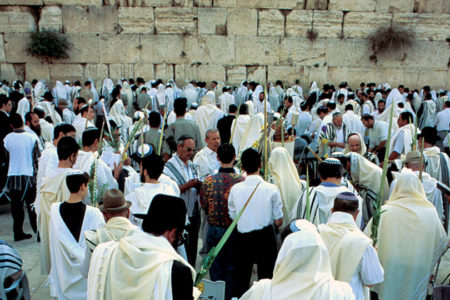The Wisdom of God Part One
Webster’s New International Dictionary defines wise as “discerning and judging soundly concerning what is true or false, proper or improper.” It defines wisdom as the “quality of being wise; ability to judge soundly and deal sagaciously with facts, esp. as they relate to life and conduct.”1 These definitions are valid in relationship to daily human conduct in society.
But there is another significant concept of wisdom that could be called ultimate reality wisdom. It not only addresses issues related to daily human conduct but also the issue of ultimate reality.
Ultimate Reality Wisdom
Ultimate reality wisdom addresses such issues as how the universe and everything in it came into existence. How did the sun originate to illuminate the earth by day? How did the moon and stars come to illuminate it by night? How did all the living creatures, including people, animals, and plants, come into being?
The Bible addresses both this ultimate reality wisdom and the wisdom related to daily human conduct in society.
Biblical Definition of ‘Wisdom’
Job asked,
But where can wisdom be found? And where is the place of understanding? Man does not know its value, nor is it found in the land of the living. From where then does wisdom come? And where is the place of understanding? It is hidden from the eyes of all living, and concealed from the birds of the air (Job 28:12–13, 20-21).
Job indicated that “God understands its way, and He knows its place. For He looks to the ends of the earth, and sees under the whole heavens” (vv. 23–24) and that with God “are wisdom and strength” (12:13). He also declared, “And to man He said, ‘Behold, the fear of the Lord, that is wisdom, and to depart from evil is understanding’” (28:28).
Old Testament language scholar H. F. Fuhs claimed the word translated “fear” in the phrase the fear of the Lord refers to a twofold effect on a person: “terror, retreat, and flight on the one hand,” and “attraction, trust, and love on the other.”2 The latter effect should prompt “reverence, worship, and obedience to God’s command.”3 In other words, “Wisdom stands and falls according to the right attitude of man to God.”4
The biblical concept that the fear of the Lord is wisdom “encountered a secular world in which natural processes obeyed their own inner laws, and values such as life, possessions, and honor were esteemed for their own sake.”5 But that secular form of wisdom failed to explain the origin or foundation of the inner laws of the natural processes and the existence of human and animal life forms.
In contrast, God made it clear to Job that the universe and everything in it, including all life forms, are the result of His wisdom (38:1—39:30). Thus Job was right to declare that with God “are wisdom and strength” (12:13). God had the wisdom and power to bring the entire universe into existence.
Other biblical passages emphasize this same truth. Psalm 104 exclaims, “O Lᴏʀᴅ, how manifold are Your works! In wisdom You have made them all” (v. 24).
Psalm 136:3–9 exhorts,
Oh, give thanks to the Lord of lords!…To Him who alone does great wonders,…To Him who by wisdom made the heavens,…To Him who laid out the earth above the waters,…To Him who made great lights,…the sun to rule by day,…the moon and stars to rule by night, for His mercy endures forever.
Proverbs 3:19–20 states, “The Lord by wisdom founded the earth; by understanding He established the heavens; by His knowledge the depths were broken up, and clouds drop down the dew.”
In Proverbs 8:22–31, King Solomon, to whom God had given incredible wisdom, personified the wisdom God used when He created the heavens, earth, and human beings. Solomon portrayed wisdom as “a master craftsman” who daily was with God as His delight, rejoiced in God’s world that He inhabited with all His created life forms, and especially delighted in God’s creation of people.
God told the prophet Jeremiah,
Thus you shall say to them: “The gods that have not made the heavens and the earth shall perish from the earth and from under these heavens.” He has made the earth by His power, He has established the world by His wisdom, and has stretched out the heavens at His discretion. When He utters His voice, there is a multitude of waters in the heavens: “And He causes the vapors to ascend from the ends of the earth. He makes lightning for the rain, He brings the wind out of His treasuries” (Jer. 10:11–13).
The apostle Paul wrote,
Oh, the depth of the riches both of the wisdom and knowledge of God! How unsearchable are His judgments and His ways past finding out! “For who has known the mind of the Lᴏʀᴅ? Or who has become His counselor? Or who has first given to Him and it shall be repaid to him?” For of Him and through Him and to Him are all things, to whom be glory forever. Amen (Rom. 11:33–36).
Paul closed his letter to the Romans with the following benediction: “To God, alone wise, be glory through Jesus Christ forever. Amen” (16:27). Through this statement he emphasized that the God of the Bible, whose Son is Jesus Christ, is the only God possessing wisdom. Nothing else people worship as gods possesses wisdom because they are impersonal images of wood, clay, metal, or stone formed by human beings.
In Ephesians 3:10 Paul referred to “the manifold wisdom of God.” The word translated “manifold” means “many-sided.”6 New Testament language scholar Heinrich Seesemann indicated that Paul was claiming, “The wisdom of God has shown itself in Christ to be varied beyond measure and in a way which surpasses all previous knowledge thereof.”7
James 1:5–6 indicates that God dispenses wisdom to those who ask for it in faith without doubting: “If any of you lacks wisdom, let him ask of God, who gives to all liberally and without reproach, and it will be given to him. But let him ask in faith, with no doubting, for he who doubts is like a wave of the sea driven and tossed by the wind.”
James 3:17 describes the quality of the wisdom God dispenses to those who ask for it properly: “the wisdom that is from above is first pure, then peaceable, gentle, willing to yield, full of mercy and good fruits, without partiality and without hypocrisy.”
Jude 25 indicates that God’s wisdom is exclusive: “To God our Savior, Who alone is wise, be glory and majesty, dominion and power, both now and forever. Amen.”
Revelation 4:1–11 and 7:11–12 reveal that God’s unique wisdom is permanent. It will never come to an end. The apostle John was shown the throne room of heaven. In Revelation 4, John saw four living creatures, apparently high-ranking angels, around God’s throne. Day and night without rest they give glory, honor, and thanks to God, “who lives forever and ever.”
Twenty-four elders fall down before God “and worship Him who lives forever and ever” and say, “You are worthy, O Lord, to receive glory and honor and power; for You created all things, and by Your will they exist and were created” (4:10–11). Later,
All the angels stood around the throne and the elders and the four living creatures, and fell on their faces before the throne and worshiped God, saying: “Amen! Blessing and glory and wisdom, thanksgiving and honor and power and might, be to our God forever and ever. Amen” (7:11–12).
The apostle Paul wrote,
Where is the wise? Where is the scribe? Where is the disputer of this age? Has not God made foolish the wisdom of this world? For since, in the wisdom of God, the world through wisdom did not know God, it pleased God through the foolishness of the message preached to save those who believe. For Jews request a sign, and Greeks seek after wisdom; but we preach Christ crucified, to the Jews a stumbling block and to the Greeks foolishness, but to those who are called, both Jews and Greeks, Christ the power of God and the wisdom of God (1 Cor. 1:20–24).
Then he wrote,
However, we speak wisdom among those who are mature, yet not the wisdom of this age, nor of the rulers of this age, who are coming to nothing. But we speak the wisdom of God in a mystery, the hidden wisdom which God ordained before the ages for our glory, which none of the rulers of this age knew; for had they known, they would not have crucified the Lord of glory (2:6–8).
In Colossians 2:2–3, Paul referred to “the mystery of God, both of the Father and of Christ, in whom are hidden all the treasures of wisdom and knowledge.”
ENDNOTES
- Webster’s New International Dictionary of the English Language, 2nd ed., unabridged (Springfield, MA: G. & C. Merriam, 1939), 2,938., s.v. “wise, wisdom.”
- H. F. Fuhs, “yare,” Theological Dictionary of the Old Testament, ed. Johannes Botterweck and Helmer Ringgren, trans. David E. Green, translated from Theologisches Worterbuch zum Alten Testament (Grand Rapids, MI: Eerdmans 1990), 298.
- Ibid., 298.
- G. von Rad, Wisdom in Israel, cited in Fuh’s, 6:69.
- Ibid., 311.
- William F. Arndt and F. Wilbur Gingrich, eds./trans., “polupoikilo,” A Greek English Lexicon of the New Testament and Other Early Christian Literature (1952: translation and adaptation of Walter Bauer’s Griechisch-Deutsches Worterbuch zu den Schriften des Neuen Testaments und der ubrigen urchristlichen Literatur, 4th ed.; Chicago, IL: University of Chicago Press, 1957), 694.
- Heinrich Seesemann, ”polupoikilos,” Theological Dictionary of the New Testament, ed. Gerhard Friedrich, trans./ed. Geoffrey W. Bromiley, translated from Theologisches Worterbuch zum Neuen Testament (Grand Rapids, MI: Eerdmans, 1968), 6:485.







